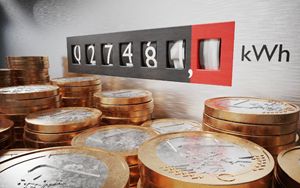(Finance) – Despite the slight decline in prices recorded in the last half-year, the cost of energy continues to remain at extraordinary values. The Single National Price (PUN) of electricity is still high: in the last two years it has recorded completely exceptional levels (up to 700 €/MWh) and, although today it has repositioned itself on values closer to the norm (between 100 and 130 €/ MWh), its value still appears to be more than double compared to the prices recorded in the pre-crisis period (2019). This is what emerges from an analysis of Confcommercio-Imprese for Italy on energy costs for tertiary companies.
There crisis energy of the two-year period 2021-2022 cannot therefore be considered yet overcome and its effects will also be felt in the near future. Moreover, the tensions geopoliticsnow also fueled by the conflict in the Middle East which determines a further strong element of instability on the markets, will keep the risk of flare-ups in energy prices high well beyond 2023.
If the components are considered togetherelectricity and gas“, spending for companies in the tertiary market sector was, in 2022, equal to 32.9 billion euros and is expected to reduce, in 2023, to 19.3 billion euros (-41% on the previous year). However, in comparison with 2019 (a year considered to be of “economic normality” in terms of energy) the expenditure in 2023 will be 44% higher overall.
Furthermore, the Dear fuels continues to hit transport and the entire mobility sector hard. As of September 2023, the average price of gas at the pump was 18% higher than the previous year and 26% higher than the pre-crisis period (September 2019). Similar dynamics characterize the price of diesel. Consequently, extra costs are estimated, on an annual basis, equal to approximately 15 thousand euros for each truck.
The recent ones measures adopted by the Government to mitigate the impact of costs of energy for businesses and families (law decree 131/2023) should therefore be strongly strengthened, starting from the need to reintroduce the energy tax credits and to reset the general system charges for the electricity sector, similarly to what was done for gas. Furthermore, on the cost of fuel, it will be necessary to ensure continuity of the benefit of commercial diesel, which is essential for the competitiveness of road haulage companies and is useful for containing inflation, and making this benefit structural also for tourist buses which have no longer benefited from it since the end of August.
